第235章 LETTER CLIII
LONDON,December 19,O.S.1751--[Note the date,which indicates that the sojourn with the author has ended.]
MY DEAR FRIEND:You are now entered upon a scene of business,where Ihope you will one day make a figure.Use does a great deal,but care and attention must be joined to it.The first thing necessary in writing letters of business,is extreme clearness and perspicuity;every paragraph should be so clear and unambiguous,that the dullest fellow in the world may not be able to mistake it,nor obliged to read it twice in order to understand it.This necessary clearness implies a correctness,without excluding an elegance of style.Tropes,figures,antitheses,epigrams,etc.,would be as misplaced and as impertinent in letters of business,as they are sometimes (if judiciously used)proper and pleasing in familiar letters,upon common and trite subjects.In business,an elegant simplicity,the result of care,not of labor,is required.
Business must be well,not affectedly dressed;but by no means negligently.Let your first attention be to clearness,and read every paragraph after you have written it,in the critical view of discovering whether it is possible that any one man can mistake the true sense of it:
and correct it accordingly.
Our pronouns and relatives often create obscurity or ambiguity;be therefore exceedingly attentive to them,and take care to mark out with precision their particular relations.For example,Mr.Johnson acquainted me that he had seen Mr.Smith,who had promised him to speak to Mr.Clarke,to return him (Mr.Johnson)those papers,which he (Mr.
Smith)had left some time ago with him (Mr.Clarke):it is better to repeat a name,though unnecessarily,ten times,than to have the person mistaken once.WHO,you know,is singly relative to persons,and cannot be applied to things;WHICH and THAT are chiefly relative to things,but not absolutely exclusive of persons;for one may say,the man THAT robbed or killed such-a-one;but it is better to say,the man WHO robbed or killed.One never says,the man or the woman WHICH.WHICH and THAT,though chiefly relative to things,cannot be always used indifferently as to things,and the 'euoovca'must sometimes determine their,place.For instance,the letter WHICH I received from you,WHICH you referred to in your last,WHICH came by Lord Albemarle's messenger WHICH I showed to such-a-one;I would change it thus--The letter THAT I received from you;WHICH you referred to in your last,THAT came by Lord Albemarle's messenger,and WHICH I showed to such-a-one.
Business does not exclude (as possibly you wish it did)the usual terms of politeness and good-breeding;but,on the contrary,strictly requires them:such as,I HAVE THE HONOR TO ACQUAINT YOUR LORDSHIP;PERMIT ME TOASSURE YOU;IF I MAY BE ALLOWED TO GIVE MY OPINION,etc.For the minister abroad,who writes to the minister at home,writes to his superior;possibly to his patron,or at least to one who he desires should be so.
Letters of business will not only admit of,but be the better for CERTAINGRACES--but then,they must be scattered with a sparing and skillful hand;they must fit their place exactly.They must decently adorn without encumbering,and modestly shine without glaring.But as this is the,utmost degree of perfection in letters of business,I would not advise you to attempt those embellishments,till you have first laid your foundation well.
Cardinal d'Ossat's letters are the true letters of business;those of Monsieur d'Avaux are excellent;Sir William Temple's are very pleasing,but,I fear,too affected.Carefully avoid all Greek or Latin quotations;and bring no precedents from the VIRTUOUS SPARTANS,THEPOLITE ATHENIANS,AND THE BRAVE ROMANS.Leave all that to futile pedants.No flourishes,no declamation.But (I repeat it again)there is an elegant simplicity and dignity of style absolutely necessary for good letters of business;attend to that carefully.Let your periods be harmonious,without seeming to be labored;and let them not be too long,for that always occasions a degree of obscurity.I should not mention correct orthography,but that you very often fail in that particular,which will bring ridicule upon you;for no man is allowed to spell ill.
I wish too that your handwriting were much better;and I cannot conceive why it is not,since every man may certainly write whatever hand he pleases.Neatness in folding up,sealing,and directing your packets,is by no means to be neglected;though,I dare say,you think it is.But there is something in the exterior,even of a packet,that may please or displease;and consequently worth some attention.
You say that your time is very well employed;and so it is,though as yet only in the outlines,and first ROUTINE of business.They are previously necessary to be known;they smooth the way for parts and dexterity.
Business requires no conjuration nor supernatural talents,as people unacquainted with it are apt to think.Method,diligence,and discretion,will carry a man,of good strong common sense,much higher than the finest parts,without them,can do.'Par negotiis,neque supra',is the true character of a man of business;but then it implies ready attention and no ABSENCES,and a flexibility and versatility of attention from one object to another,without being engrossed by anyone.
Be upon your guard against the pedantry and affectation of business which young people are apt to fall into,from the pride of being concerned in it young.They look thoughtful,complain of the weight of business,throw out mysterious hints,and seem big with secrets which they do not know.Do you,on the contrary,never talk of business but to those with whom you are to transact it;and learn to seem vacuus and idle,when you have the most business.Of all things,the 'volte sciollo',and the 'pensieri stretti',are necessary.Adieu.